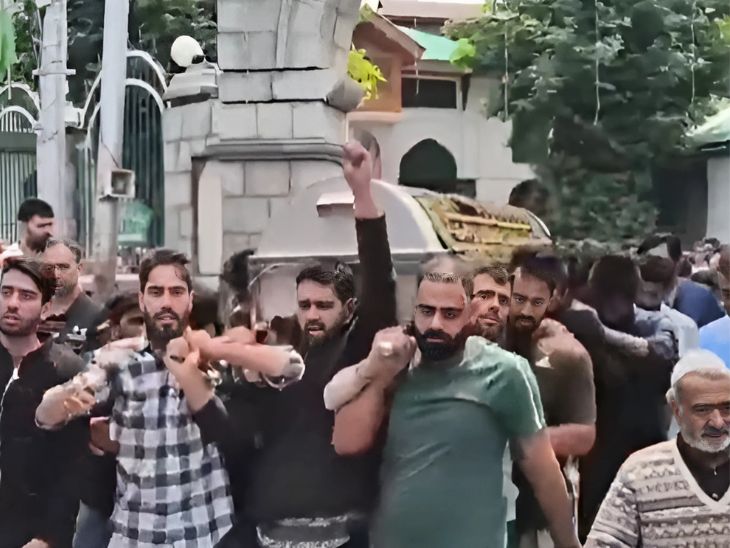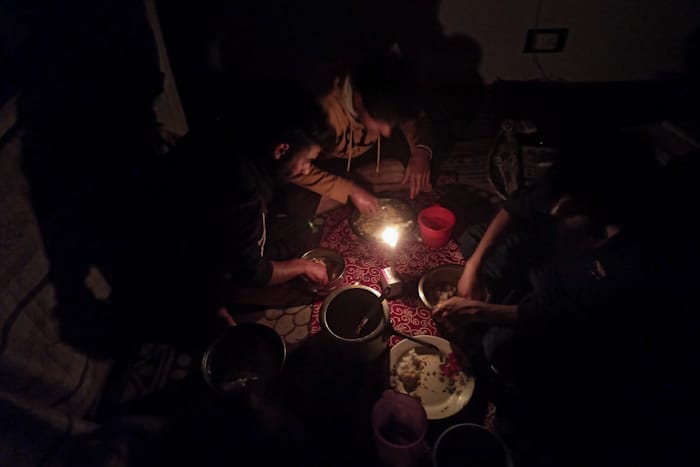A Young Life Lost, A Nation Alarmed
Zubair Ahmad Bhat, a 30-year-old trader from Ali Kadal in Srinagar, left for Delhi with nothing more than a buyer list and hopes of business. Just days later, he returned in a coffin. His tragic and suspicious death in the national capital has shocked Kashmir, reigniting debates about the safety of Kashmiris living outside their homeland, the role of law enforcement, and the deepening communal fault lines in the country.
The Incident: What Happened to Zubair Ahmad Bhat?
According to family reports, Zubair was brutally assaulted in Delhi with rods and sticks, resulting in multiple injuries that eventually led to his death. The assault allegedly occurred under circumstances that point to possible police involvement. His family suspects that Zubair was either taken into custody or beaten in a police-like encounter, leading them to describe it as a “custodial-style” killing.
His body was flown back to Srinagar on June 4, prompting a wave of public outrage and sorrow. His funeral was attended by hundreds, with prayers marked by grief, disbelief, and simmering anger.
Voices of the Valley: Kashmir Responds
Mirwaiz Umar Farooq
Delivering his Friday sermon at the iconic Jama Masjid in Srinagar, the Hurriyat chairman condemned Zubair’s death as “inhuman and unacceptable.” Drawing parallels to previous cases of custodial abuse, he said:
“Zubair’s custodial-like death has brought back haunting memories. How long will this continue? When will the violence against Kashmiris stop?”
Iltija Mufti
Peoples Democratic Party (PDP) leader Iltija Mufti visited Zubair’s family, offering condolences and demanding accountability. Speaking to the press, she emphasized the need for a fair investigation:
“There are screenshots, chats, and phone logs that hint at something sinister. The Delhi Police must not be allowed to bury this case.”
Imran Nabi Dar
The National Conference’s spokesperson called for Omar Abdullah to intervene:
“This cannot be another case lost in red tape. Justice must not only be done but seen to be done. The silence is dangerous.”
The Larger Context: Are Kashmiris Safe Outside the Valley?
Zubair’s case is not an isolated tragedy. It fits into a disturbing pattern of hostility and discrimination that many Kashmiris report facing in mainland India. From college students in Uttar Pradesh to shawl sellers in Gujarat, Kashmiris often find themselves under suspicion and subject to both state surveillance and public violence.
Fear Among Traders and Students
Kashmiri traders in Delhi, particularly those working as street vendors, have long spoken of their insecurity. Following major incidents in Kashmir, they often become scapegoats, facing police detentions, eviction threats, and mob harassment.
A recent report by a Delhi-based civil liberties organization revealed that many Kashmiri Muslims in the capital live in areas with a high concentration of Muslims, out of sheer necessity for safety.
The Political Storm: Silence and Statements
While local political parties in Kashmir have been vocal, there has been conspicuous silence from major national parties and central authorities.
The Role of the Delhi Police
Neither the Delhi Police nor the J&K administration has released a comprehensive statement clarifying the events surrounding Zubair’s death. This lack of transparency has only added to the public’s suspicions and eroded trust.
Delhi’s Track Record
This is not the first time the Delhi Police has faced allegations of bias and excessive force against minorities. From the 2020 Delhi riots to the crackdown on student protests, their reputation among civil society has taken repeated hits.
The Legal Angle: What Can Be Done?
Legal experts point out that if any evidence supports custodial violence, a case under Section 302 (murder) of the IPC should be registered, along with independent investigation protocols.
The family has demanded a magisterial inquiry, with oversight either from the judiciary or a human rights commission.
National Human Rights Commission (NHRC) Involvement
There have been growing calls for NHRC to take suo-motu cognizance of the case. Civil rights activists argue that unless national institutions act swiftly, impunity will deepen.
Emotional Aftermath: A Family Broken
Zubair’s father, speaking to local media, said:
“My son had dreams. He left for Delhi like he had done many times before. He never returned alive. We want justice, not compensation.”
The family has refused to accept any ex-gratia relief, stating that no amount can compensate for the loss unless those responsible are punished.
Media and Civil Society Response
Several independent journalists and human rights groups have taken up the case. Online campaigns using hashtags like #JusticeForZubair and #KashmiriLivesMatter have gained traction.
Petitions demanding an independent inquiry have begun circulating, and civil society organizations in Kashmir and Delhi are coordinating to maintain public pressure.
Bottom-Line: A Moment of Reckoning
The death of Zubair Ahmad Bhat is more than just a tragic story of violence; it is a mirror held up to a nation grappling with deep divisions. As protests mount and calls for justice grow louder, this incident could mark a turning point in how India addresses the safety of marginalized communities, particularly those from Kashmir.
Justice, if delivered swiftly and transparently, can begin the healing. If not, Zubair’s death risks becoming another chapter in a growing catalogue of unaddressed injustices.



